Embarking on the journey of naming your canine companion can be a meaningful endeavor, especially when drawing from the vast reservoir of mythological deities. Each name carries a weight of history and symbolism, reflecting the characteristics of gods and goddesses from diverse cultures.
As you consider bestowing a mythological name upon your divine dog, think of the stories and powers these names encapsulate. The connection between your furry friend and ancient legends can add a layer of depth and intrigue to your bond, infusing your everyday interactions with a touch of the mystical.
Key Takeaways
- Choose mythological names like Apollo or Freyja for your divine dog's symbolic significance.
- Honor loyalty and protection with names like Anubis or Shvan for your faithful companion.
- Embrace wisdom and knowledge with names like Odin or Bai Ze for a wise and mystical aura.
- Consider names like Cerberus or Cu Chulainn for a guardian and protector role for your divine dog.
Greek Mythology Dogs
Exploring renowned figures from Greek mythology, one can draw inspiration for naming their canine companions after revered deities such as Apollo, Ares, Dionysus, Eros, and Hades.
Apollo, known for his association with music and healing, could be a fitting name for a loyal and intelligent dog. Ares, the god of war, might suit a strong and protective canine. Dionysus, symbolizing celebration and wine, could be perfect for a pup that brings joy to its owner. Eros, representing love and desire, could be a charming name for an affectionate pet. Hades, ruling the underworld, could be a unique choice for a mysterious and dark-colored dog.
Choosing a Greek mythology-inspired name can add depth and character to your beloved canine companion.
Norse Mythology Dogs
Drawing inspiration from the rich tapestry of Norse mythology, one can find powerful and intriguing names for their canine companions that reflect the strength and mystique of deities like Freyja, Loki, Odin, Thor, and Tyr. These names carry a sense of valor and power, making them ideal for dogs with a strong presence and personality. Here are some Norse mythology dog names to consider:
| Male Names | Female Names |
|---|---|
| Odin | Freyja |
| Thor | Sif |
| Loki | Idunn |
| Tyr | Skadi |
| Freyr | Eir |
Egyptian Mythology Dogs
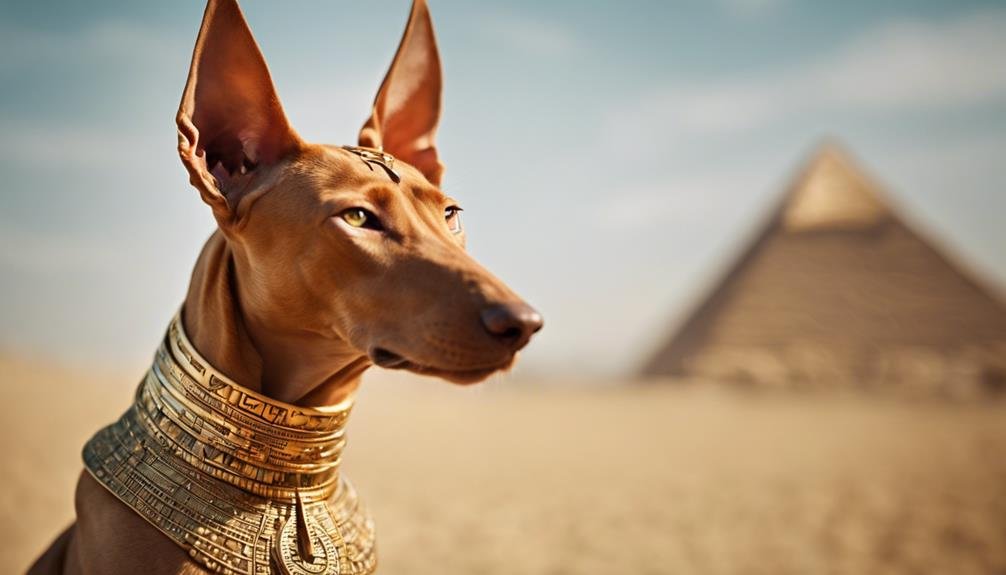
Within the realm of Egyptian mythology, dogs hold significant symbolic importance as loyal companions and guardians to their human counterparts. One of the most prominent canine figures in Egyptian mythology is Anubis, the god of mummification and the afterlife, often depicted with the head of a jackal. Anubis played a crucial role in guiding souls through the underworld and weighing their hearts against the feather of Ma'at.
Dogs were also associated with the goddess Bastet, who was believed to protect homes from evil spirits and diseases. In ancient Egypt, dogs were revered for their keen sense of smell and hearing, traits that made them valuable allies in hunting and protection, reflecting their divine status in Egyptian mythology.
Celtic Mythology Dogs
Celtic mythology intertwines rich tales of revered canines, embodying themes of loyalty and guardianship in the mystical realm. In this ancient folklore, dogs often symbolize protection, bravery, and companionship, playing significant roles in various myths and legends.
Here are three notable Celtic mythological dogs:
- Cu Chulainn's Hound: Known as the loyal hound of the legendary hero Cu Chulainn, this magical dog possessed extraordinary speed and strength, aiding its master in battle.
- The Cwn Annwn: In Welsh mythology, these spectral hounds were believed to roam the afterlife, guiding souls to the Otherworld and serving as protectors of the supernatural realm.
- Gelert: A beloved figure in Welsh folklore, Gelert's tragic tale highlights the bond between man and dog, showcasing themes of loyalty, remorse, and sacrifice.
Roman Mythology Dogs
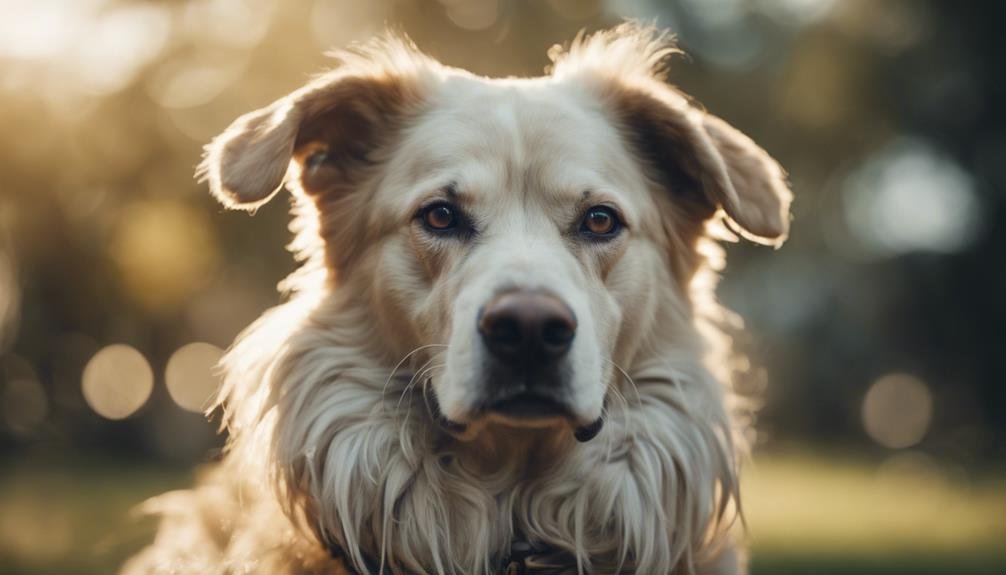
Roman mythology features several prominent canines that play significant roles in various tales and legends, embodying characteristics of loyalty, protection, and symbolism within the ancient Roman pantheon. One notable example is Cerberus, the three-headed dog guarding the entrance to the underworld. Another is Lupa, the she-wolf who nursed the legendary founders of Rome, Romulus and Remus. These mythological dogs hold a special place in Roman folklore, representing both ferocity and nurturing qualities.
| Roman Mythology Dogs | Description |
|---|---|
| Cerberus | Three-headed dog guarding the underworld entrance. |
| Lupa | She-wolf who nursed Romulus and Remus, the founders of Rome. |
Hindu Mythology Dogs
Hindu mythology showcases revered canines that hold significant roles, embodying virtues and symbolism within this ancient pantheon. Dogs are considered sacred in Hinduism, symbolizing loyalty, protection, and companionship.
Here are three notable dogs from Hindu mythology:
- Shvan – The dog associated with the god Bhairava, known for guarding the cremation grounds and symbolizing death and transformation.
- Sharvara – The faithful dog of Yudhishthira in the epic Mahabharata, who accompanied him on his final journey to the gates of heaven.
- Sarama – The divine mother of all dogs, described as the hound of heaven who helps Indra recover stolen cows in Vedic texts.
Japanese Mythology Dogs
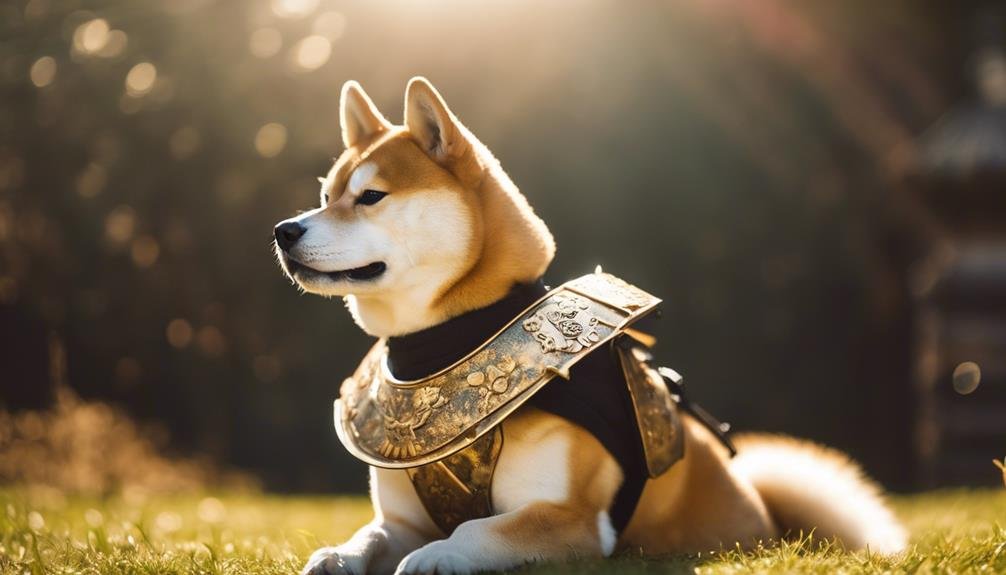
Dogs in Japanese mythology hold diverse and revered roles, reflecting cultural beliefs and folklore in intricate ways. In Japanese folklore, dogs are often seen as loyal and protective companions, with some even possessing supernatural abilities. Here are some notable dogs from Japanese mythology:
| Mythological Dog | Role | Description |
|---|---|---|
| Shisa | Guardian | Lion-dog hybrid |
| Inugami | Vengeful Spirit | Dog spirits |
| Okuri-Inu | Death Omen | Hellhound |
| Komainu | Protector | Lion-dog statues |
| Kuro | Demon Slayer | Black dog with red eyes |
African Mythology Dogs
In exploring the diverse realm of mythological dogs, African mythology presents a rich tapestry of canine figures with unique roles and significance. Dogs in African mythology often symbolize loyalty, protection, and guidance, playing integral parts in various stories and beliefs.
Here are three notable African mythology dogs:
- Anubis: Known as the Egyptian god of the afterlife, Anubis is often depicted with the head of a jackal or dog. He guides souls through the underworld and ensures they are justly judged.
- Oya: In Yoruba mythology, Oya is a powerful goddess associated with winds, lightning, and storms. She is often accompanied by a faithful dog as a companion and protector.
- Zulu: Within Zulu folklore, dogs are revered for their hunting prowess and loyalty, often portrayed as esteemed companions to heroes and kings.
Chinese Mythology Dogs
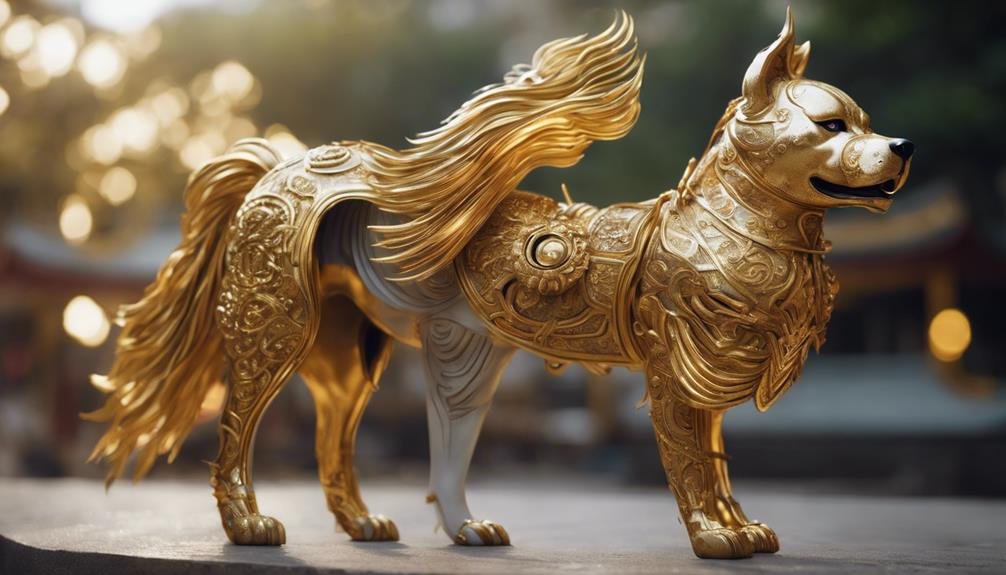
Chinese mythology features several notable canine figures that hold significant roles and symbolism within the ancient stories and beliefs. Among these, the most prominent is "Tian Gou", known as the Heavenly Dog, a divine creature that served as a loyal companion to the deities. Another important figure is "Bai Ze", a mystical dog-like creature with the ability to understand human language and impart knowledge. Here is a table showcasing these Chinese Mythology dogs:
| Canine Figure | Description |
|---|---|
| Tian Gou | Heavenly Dog |
| Bai Ze | Mystical Creature |
| Name | Description |
| Tian Gou | Heavenly Dog |
| Bai Ze | Mystical Creature |
Native American Mythology Dogs
Within the rich tapestry of Native American mythology, canine companions play vital roles as revered and respected beings. These divine dogs are not just ordinary pets but possess unique qualities and powers that symbolize various aspects of nature and spirituality.
Here are three notable Native American mythology dogs:
- Spirit Dog: Known for its guidance and protection, the Spirit Dog is a loyal companion believed to watch over individuals and communities.
- Trickster Dog: Often depicted as a mischievous yet wise figure, the Trickster Dog challenges norms and imparts valuable lessons through its cunning behavior.
- Guardian Dog: This mythical canine is revered for its strength and courage, standing as a protector against malevolent forces and bringing peace to those in need.
Slavic Mythology Dogs
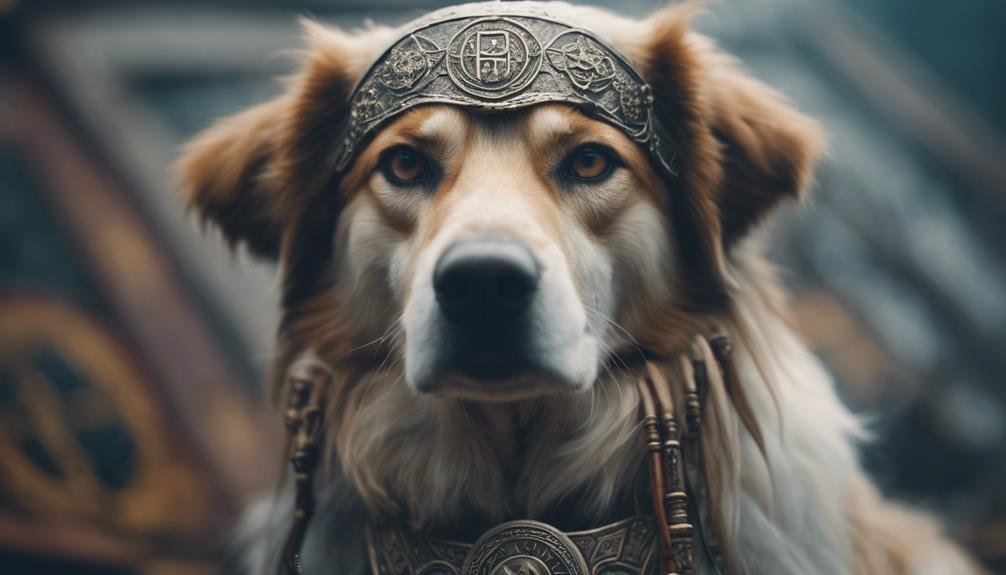
Native American mythology and Slavic mythology both feature revered dogs with distinctive roles and symbolism. In Slavic folklore, the most prominent dog is the Zorya's hound, depicted as a fierce guardian protecting against evil forces. This dog guards the celestial palace, ensuring the safety of the universe. Additionally, the god Veles is often associated with dogs, symbolizing the underworld and acting as the guardian of the dead.
Dogs in Slavic mythology embody qualities such as loyalty, bravery, and wisdom, serving as loyal companions, protectors, and guides. Owners looking to honor Slavic mythology through their canine companions could consider names like Zorya, Veles, or even Chernobog for a darker, mysterious touch.
Aztec Mythology Dogs
In Aztec mythology, dogs play significant roles, embodying various symbolic meanings and connections to the divine realm. They are revered for their loyalty, protection, and association with important deities. Here are three notable dogs in Aztec mythology:
- Xolotl: Known as the god of death, lightning, and monstrosities, Xolotl is also depicted as a dog-headed deity. He guides the deceased through the dangers of the underworld.
- Itzcuintli: This term refers to the Aztec breed of hairless dogs, considered sacred by the Aztecs. They were believed to have healing powers and were often used in rituals and sacrifices.
- Chicomecoatl's Dogs: Chicomecoatl, the goddess of agriculture, was often depicted with a group of dogs as her companions, symbolizing the connection between sustenance and protection.
Oceanic Mythology Dogs
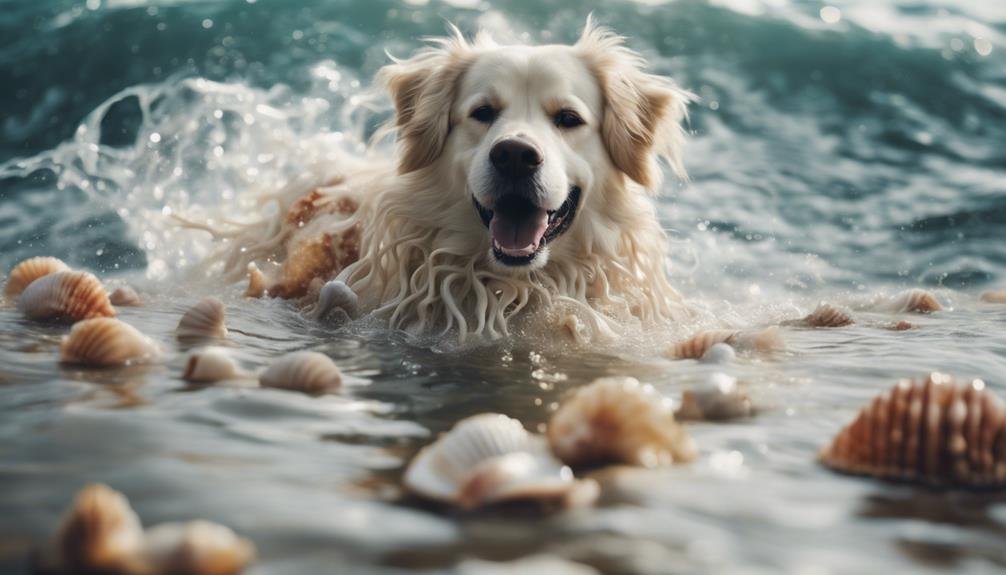
Dogs in Oceanic mythology play significant roles, embodying symbolic connections to the divine realm and representing various aspects of culture and spirituality. In Oceanic cultures, dogs are often associated with deities such as Kanaloa, the Hawaiian god of the ocean, who is sometimes depicted with a dog companion symbolizing loyalty and protection.
Maui, a prominent figure in Polynesian mythology known for his heroic deeds, is also linked to dogs in some stories, showcasing their bravery and loyalty. Pele, the Hawaiian goddess of fire and volcanoes, is another deity where dogs are seen as sacred animals, reflecting traits of fierceness and guardianship.
Tangaroa, the Maori god of the sea, is sometimes accompanied by dog spirits that aid and protect seafarers.
Mesopotamian Mythology Dogs
Mesopotamian mythology features dogs as revered beings closely intertwined with the deities and spiritual beliefs of the ancient civilization. Dogs were considered sacred and played significant roles in various myths and religious practices.
Here are three notable dogs from Mesopotamian mythology:
- Sirrush: A mythical creature depicted with the body of a dragon, forelegs of a lion, hind legs of an eagle, and the tail of a scorpion. It symbolized the power of the god Marduk.
- Kulullû: Another fantastical creature with the body of a fish and the head of a dog or dragon. It was associated with the god Ea, known for wisdom and magic.
- Pakhal: A guardian dog in Mesopotamian mythology, often portrayed as a loyal companion and protector of sacred places and individuals.
Incan Mythology Dogs
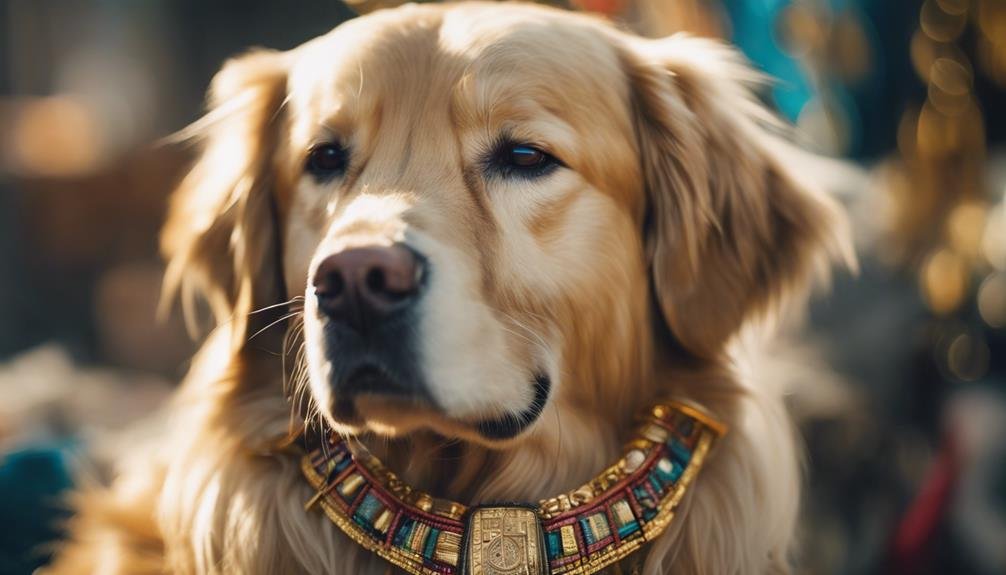
Guardians of sacred realms and esteemed companions, dogs in Incan mythology embodied loyalty and protection in the divine narratives of the ancient Andean civilization. In Incan culture, dogs were revered for their loyalty, bravery, and protective nature. They were often depicted in art and mythology as guardians of the home and companions to the gods. Here is a table showcasing some notable dogs in Incan mythology:
| Incan Mythology Dogs | ||
|---|---|---|
| Name | Description | Role |
| Inti | Sun god's loyal companion | Guardian |
| Mama Quilla | Moon goddess's faithful dog | Protector |
| Illapa | God of thunder's companion | Defender |
Could Mythological Names for Dogs Be as Unique as Old Lady Dog Names?
Mythological names for dogs can be just as unique as old lady dog names. Whether you choose to name your dog after a goddess from Greek mythology or a character from ancient folklore, both options can provide a timeless and meaningful name for your furry companion.
Conclusion
In conclusion, the diverse pantheon of mythological gods and goddesses from various cultures provides a rich source of inspiration for naming our canine companions. Drawing from Greek, Norse, Egyptian, Celtic, Roman, Aztec, Oceanic, Mesopotamian, and Incan mythologies, names like Apollo, Freyja, Anubis, Cuchulainn, and Huitzilopochtli offer a unique and meaningful connection to ancient narratives.
By choosing these divine names for our dogs, we can imbue them with a sense of mystique and power rooted in cultural history.




